#Annelida
Explore tagged Tumblr posts
Text

A fried eggs worm (Archipheretima middletoni) in Aurora, the Philippines
by Chien C. Lee
#fried eggs worm#earthworms#annelids#archipheretima middletoni#archipheretima#Megascolecidae#Opisthopora#Clitellata#Annelida#wildlife: philippines#wildlife: asia
493 notes
·
View notes
Text
I think this is the first time I've made furry ocs that are fully mine and not a design for an existing character. I will make more but for now, have a caecilian libarian (unnamed rn, he/him) and his bobbit worm college medical student friend (she/her her name is mosiac also)
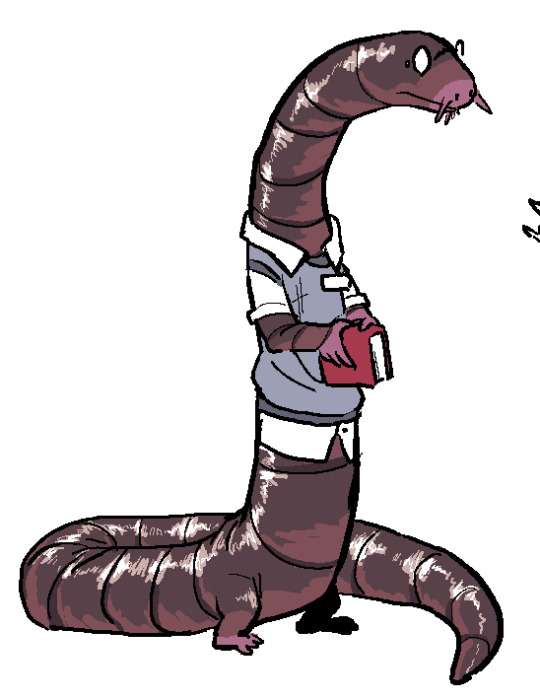
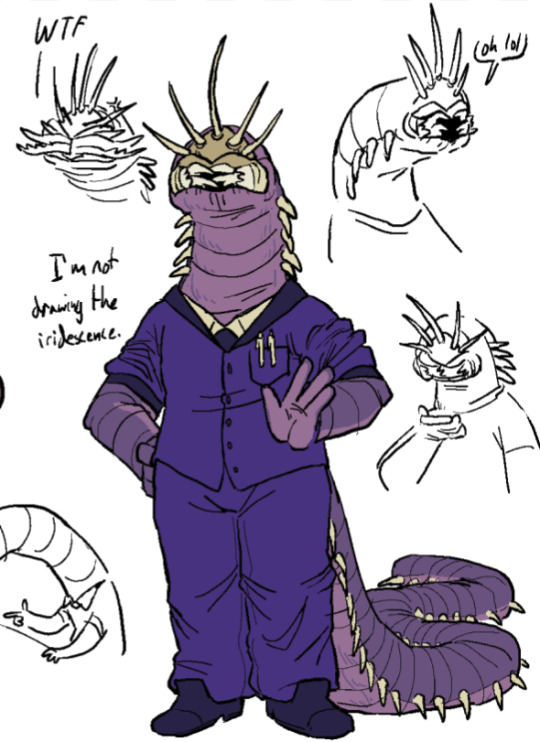
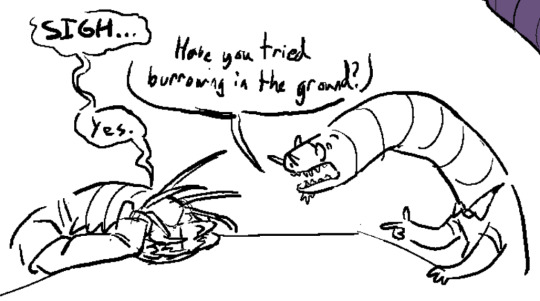
#tari oc#furry#anthro#caecilian#bobbit worm#ribble the scribble#I feel like I should use more tags but I don't know#amphibian#annelida
731 notes
·
View notes
Text


Photos thanks to Oceana & Scuba!
#indo pacific#carribean#christmas tree worm#polychaete#polychaete worm#annelida#marine invertebrates#marine animals#marine biology#pleistoannelida#sedentaria#serpulidae#animal polls#poll blog#my polls#animals#polls#tumblr polls#sea creatures#marine life
291 notes
·
View notes
Text

Annelida is the only one of my Palmettos who got the forehead patch like their mom, Best Donut.
Here's Best Donut on her 'gotcha day' for comparison:

#Annelida#snake#snakes#reptile#reptiles#reptiblr#corn snake#corn snakes#corn snake morphs#palmetto corn snake#bdjb23b#best donut
162 notes
·
View notes
Text
Phylum Round 3
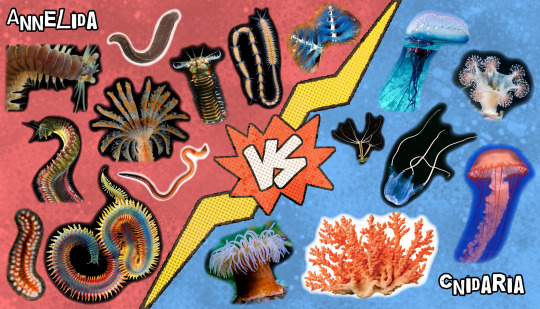
Annelida: Segmented Worms. This group includes earthworms, leeches, and many classes under the umbrella of “polychaete”. This diverse phylum encompasses deposit feeders (eating dirt), detritivores, scavengers, deadly ambush predators, filter feeders, parasites, herbivores, and more. They are broadly defined by their repeating body segments and parapodia, which are nubby appendages used for both movement and breathing. Some have curved jaws for catching prey or scraping detritus off of rocks, while others have wide, elaborate, brightly colored feather-like fans for filter feeding. While able to crawl freely, a majority of marine Annelids spend most of their time in self-built tubes or burrows. Among their many important functions, they play a key role in mixing soil/sediment, breaking down decaying organic matter, and providing a key food source to countless other animals.
Cnidaria: Jellyfish, anemones, corals, box jellies, and hydroids. They have a gelatinous body with radial symmetry, a decentralized nervous system, and tentacles surrounding a simple mouth. The defining feature of this phylum are their cnidocytes, or stinging cells. There are two different body plans of the Cnidaria; an immobile “polyp” attached to a surface, or a free-living “medusa” which can swim or drift in the water column. Many polyp Cnidarians, such as corals, live in colonies. Some corals build reefs which serve as habitat for other animals. Free-living medusa Cnidarians must return to the seafloor in a polyp-like stage as a part of their life cycle.
#annelida#cnidaria#animal bracket#tumblr bracket#bracket tournament#poll bracket#phylum round 3#phylum#begging on my knees for annelids rn sorry I am so biased#world's best most beloved worms
340 notes
·
View notes
Text

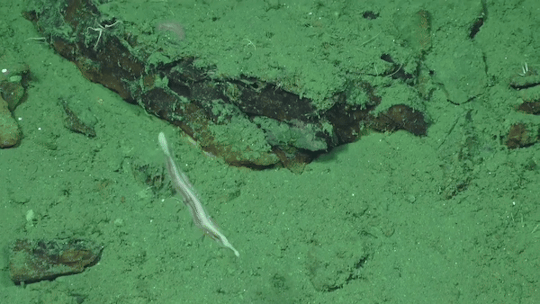
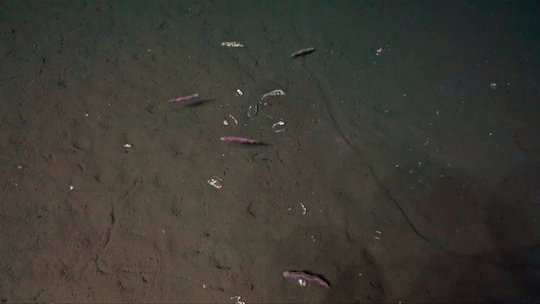
Pectinereis strickrotti is a recently described nereidid polychaete worm found in the coastal waters of the Pacific Ocean, found at methane seeps off the coast of Costa Rica. Specimens of Pectinereis strickrotti had been observed dating back to 2009 swimming just above the seafloor at ~1,000 m depth but were not successfully captured until 2018.
This species is known for its distinctive, fan-like parapodia, which are used for both locomotion, as swimming, and respiration. This polychaete worm inhabits sandy or muddy substrates, where it burrows and forms a protective tube. Its feeding strategy is largely suspension-based, capturing plankton and organic material from the water column using its elaborately branched tentacles. The species plays an important ecological role by contributing to the sediment's bioturbation, enhancing nutrient cycling in its habitat. As a bioindicator, P. strickrotti's presence and health can reflect changes in the quality of coastal ecosystems, especially regarding pollution levels and environmental disturbances.
Gifs extracted from video: Tulio F. Villalobos-Guerrero,
Reference (Open Access): Villalobos-Guerrero et al., 2024. A remarkable new deep-sea nereidid (Annelida: Nereididae) with gills. PlosONE
#Open Access#science#new species#marine biology#nereididae#annelida#polychaeta#blisster#Pectinereis strickrotti#biology#deep sea#pacific#gif
39 notes
·
View notes
Text

Candy striped polychaete :3 (he/him)


#my art#art#artists on tumblr#digital art#digital artist#oc art#original character art#original character#character design#bug art#invertebrates#annelida#polychaete#candy striped polychaete#dorvillea moniloceras
39 notes
·
View notes
Note
Do you still have leeches?
No... It was a fun little experiment but i started to feel like they would be better off outside, so I released them. Still look for leeches under rocks at the lake when i'm there, though, so I can enjoy some wiggles now and then.

(are you the same anon asking about my leach many years ago?? i think i will think of you that way until proven wrong. my slow but eternal leech anon.)
#question#anonymous#Haemopis sanguisuga#Arhynchobdellida#Clitellata#Annelida#Animalia#gif#pet#wiggling
16 notes
·
View notes
Text


earthworm alert ⚠️ watch your steps today...
#no that first one isn't flattened they just kinda look like that#yap sematary#entomology#bugblr#wormblr#earthworms#invertebrate#invertebrates#invertblr#invertiblr#annelid#annelids#annelida#lumbricidae
11 notes
·
View notes
Text
today's invertebrate.................ophidonais serpentina
she's very rude and adamant when it comes to the subject of squeaky toys and I'm not sure why
everytime they're brought up in a conversation she begins ranting about how rotless and colourful they get when you forget to look at them. it's not a great habit and has made her lose a lot of her old friends¡¡
glorpiness rating: weeee 💙

photographed by today's Jan Hamrsky (link here)
I think this worm looks funny lol
8 notes
·
View notes
Text

A feather duster worm (Sabellidae sp.) in Gozo, Malta
by Silke Baron
#feather duster worm#marine worms#segmented worms#sabellidae#sabellida#annelida#wildlife: malta#wildlife: europe
116 notes
·
View notes
Text

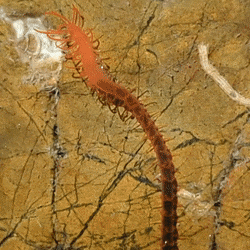
14/09/23 - Syllidae sp.
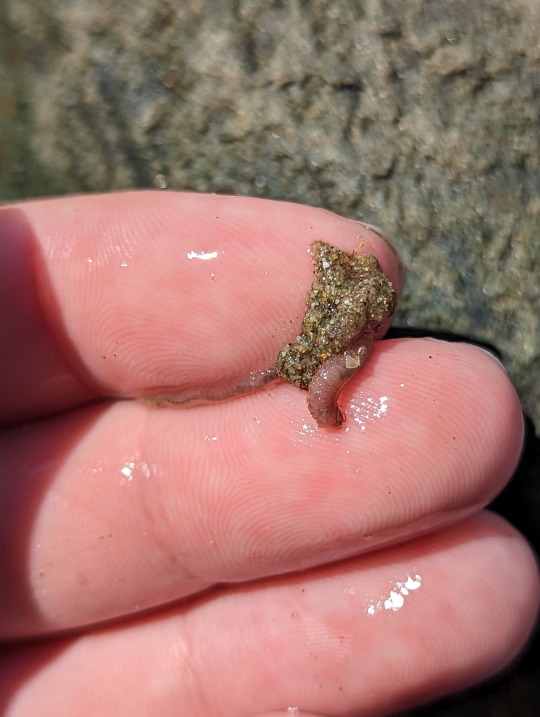
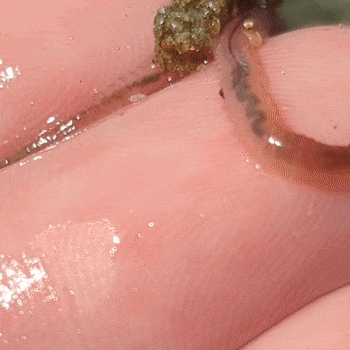
14/09/23 - Annelida sp.

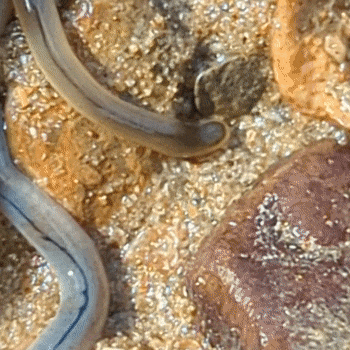
14/09/23 - Unidentified
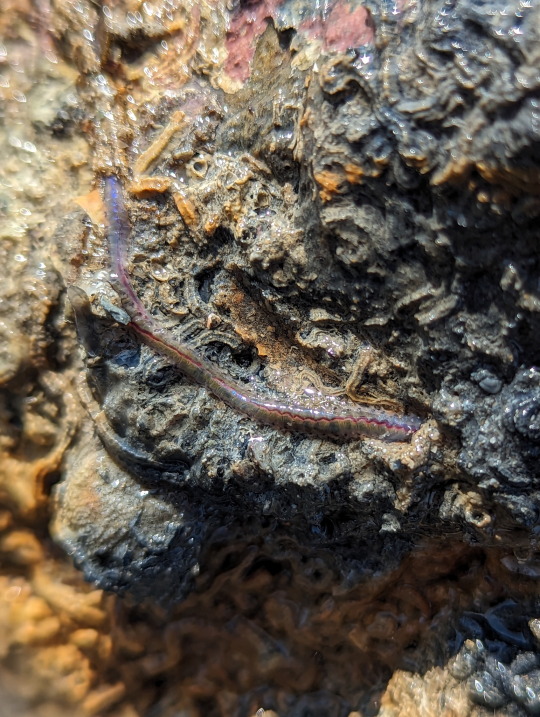
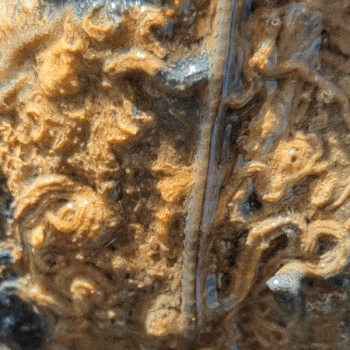
14/09/23 - Annelida sp.

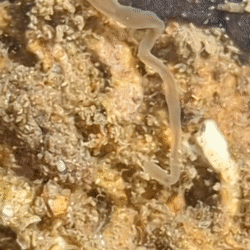
14/09/23 - Unidentified
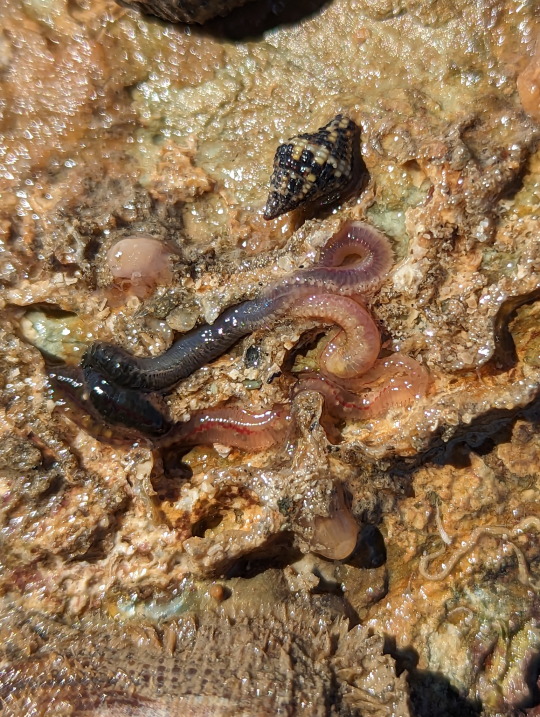
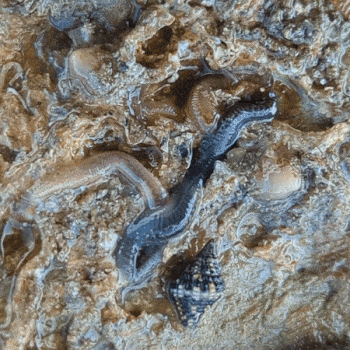
14/09/23 - Annelida sp.
Marine worms collected from tidepools
14/09/23
QLD:CQC - Yeppoon, tidepools
#Syllidae#unidentified#Polychaeta#Polychaete Worms#Annelida#Segmented Worms#Errantia#bristle worms#worms#gifs
101 notes
·
View notes
Text

Annelida is one of my 2023 holdbacks. I love that her terminal scale on her tail is one of her Palmetto spots!
#snake#snakes#reptile#reptiles#reptiblr#corn snake#corn snakes#corn snake morphs#annelida#BDJB23BF3#palmetto corn snake
103 notes
·
View notes
Text
Phylum Round 2
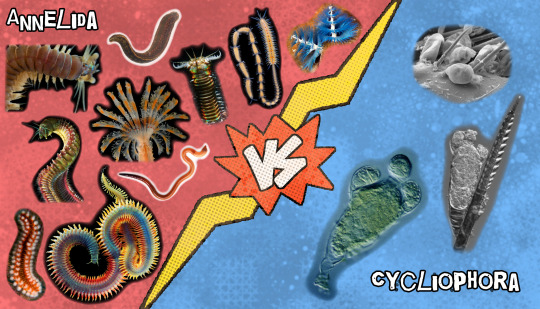
Annelida: Segmented Worms. This group includes earthworms, leeches, and many classes under the umbrella of "polychaete". This diverse phylum encompasses deposit feeders (eating dirt), detritivores, scavengers, deadly ambush predators, filter feeders, parasites, herbivores, and more. They are broadly defined by their repeating body segments and parapodia, which are nubby appendages used for both movement and breathing. Some have curved jaws for catching prey or scraping detritus off of rocks, while others have wide, elaborate feather-like fans for filter feeding. While able to crawl freely, a majority of marine Annelids spend most of their time in self-built tubes or burrows. Among their many important functions, they play a key role in mixing soil/sediment, breaking down decaying organic matter, and providing a key food source to countless other animals.
Cycliophora: An incredibly specialized phylum, the Cycliophorans consist of a single genus. These animals live exclusively on the mouthparts of lobsters. Yes, all Cycliophorans. This is considered a commensal relationship, as the lobster is not harmed by the Cycliophorans' presence. This phylum has an interesting reproductive strategy involving cloned dwarf versions of the male, embryos that drain all nutrients from the mother, and larvae that must be strong swimmers to hopefully re-colonize the host lobster's new exoskeleton whenever it molts.
#annelida#cycliophora#animal bracket#tumblr bracket#bracket tournament#poll bracket#phylum round 2#phylum
54 notes
·
View notes
Text



spring means warm and wet which means bugs on campus. foot for scale on the earthworm because it was fucking Huge
#cw bug#cw bugs#millipede#earthworm#slug#unfortunately I don't have ids for these guys#i am Awful at id'ing 😭#gastropoda#mollusca#annelida#worm#annelids#diplopoda#myriapods#mollusc
13 notes
·
View notes
Text
The rain brings friends 🪱🌧️
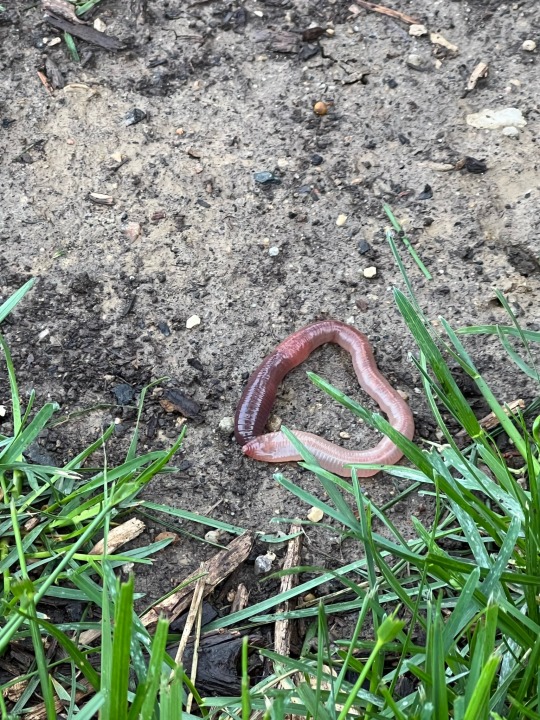
I moved as many off the pavement as I could:)
Watch your step! If you can’t move them, at least don’t smoosh them!
Moving them to a grass or dirt patch is a nice thing to do:)
When worms are on pavement they can dry out or get smooshed ☹️
They come out and move around when it’s wet because it’s easier for them to stay moisturized 🪱
Safe travels, worms! 🌧️
#cw worms#worm#nightcrawlers#or maybe#earthworms#who knows#I’m not a worm scientist#Annelida#Lumbricidae#goblincore#I don’t think wormblr is for actual worms:(
9 notes
·
View notes